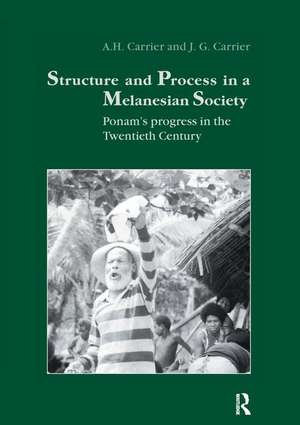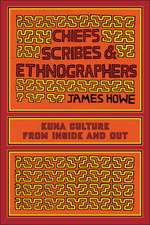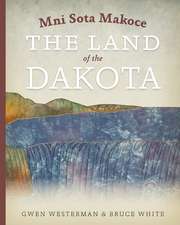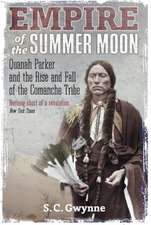Structure and Process in a Melanesian Society: Ponam's Progress in the Twentieth Century
Autor A.H. Carrier, J.G. Carrieren Limba Engleză Paperback – 26 aug 2016
| Toate formatele și edițiile | Preț | Express |
|---|---|---|
| Paperback (1) | 259.98 lei 6-8 săpt. | |
| Taylor & Francis – 26 aug 2016 | 259.98 lei 6-8 săpt. | |
| Hardback (1) | 713.04 lei 6-8 săpt. | |
| Taylor & Francis – 30 sep 1991 | 713.04 lei 6-8 săpt. |
Preț: 259.98 lei
Preț vechi: 334.03 lei
-22% Nou
Puncte Express: 390
Preț estimativ în valută:
49.76€ • 54.07$ • 41.83£
49.76€ • 54.07$ • 41.83£
Carte tipărită la comandă
Livrare economică 21 aprilie-05 mai
Preluare comenzi: 021 569.72.76
Specificații
ISBN-13: 9781138996571
ISBN-10: 1138996572
Pagini: 284
Dimensiuni: 174 x 246 mm
Greutate: 0.45 kg
Ediția:1
Editura: Taylor & Francis
Colecția Routledge
Locul publicării:Oxford, United Kingdom
ISBN-10: 1138996572
Pagini: 284
Dimensiuni: 174 x 246 mm
Greutate: 0.45 kg
Ediția:1
Editura: Taylor & Francis
Colecția Routledge
Locul publicării:Oxford, United Kingdom
Recenzii
". . .the book [is] valuable not only for what it has to say about a contemporary Papua New Guinea community. . .but more particularly for its wide-ranging critique of other anthropological accounts of Melanesian societies."
Notă biografică
Achsah and James Carrier studies Ponam society over a period of eight tears. After thirteen months of fieldwork they moved to Port Moresby and taught for seven years at the University of Papua New Guinea, frequently returning to Ponam. Since 1987 they have lived in Charlottesville in the US.
Cuprins
List Of Illustrations; Preface; Acknowledgments; Introduction: Approaching Ponam Society; Aproaching Kinship And Exchange; The Approach Of This Book; One The Organisation Of Ponam Kinship; Ponams; Relatives: Kinship From The Ego Focus; Ponamas Kin Groups: Kinship From The Ancestor Focus; Kinship And The Role Of Women In Exchange; Two Colonial History And Changes In Kamals; Early Colonial Ponam; Kamals And Lapans; Early Colonial History; The Post-War Years: Reorientation And Dependence; Kamals,Lapans And Exchanges After The War; Conclusion; Three Marriage And Ceremonial Exchange; Courtship And Marriage Choices; The Organisation Of Exchange; Contributory Gifts And Relations Between Affines And Cross-Cousins; Inequality Between Line-Of-The-Woman And Line-Of-The-Man; Logical Systems; Four Changes In Marriage And Ceremonial Exchange; Marriage Strategies; Ceremonial Exchange In The 1920S; Change And Innovation; Changing Patterns And Changing Logics; Five The Representation Of Kamals In Exchange; Visual Representation Of Social Relations; Gift Display In Ceremonial Prestations; Distributions To Moieties And Kamals; Six The Representation Of Kindreds In Exchange; Individual-Focused Displays; Kahuwe Tabac: The Return Prestation For An Engagement; Changes In Displays Over Generations; Display As Social Commentary; Conclusion; Seven The Process Of Exchange; Final Funeral Prestation For Camilius Pari; Accumulating The Contribution For The Ken Si Ndrahol; Organising An Individual'S Contributions; The Sizes Of Contributions To A Brideprice Prestation; Competition And Hierarchy: The Implications Of The System; Conclusion; Conclusion: The Tension Of Structure And Process; Structure And Process On Ponam; Conclusion: Process And Historical Context; Appendices; Social Indicators From The 1980 Census; Definitions Of Kinship Terms; Two Engagement Distributions; Glossary; References; Author Index; Subject Index;












